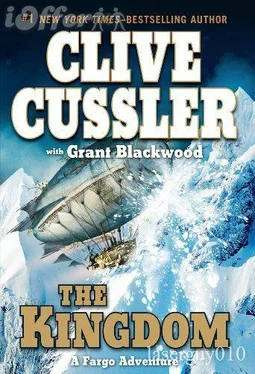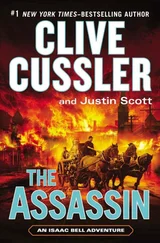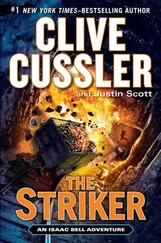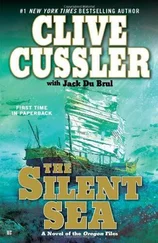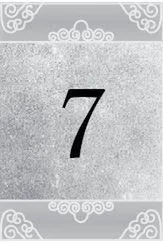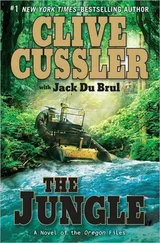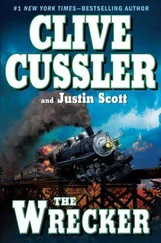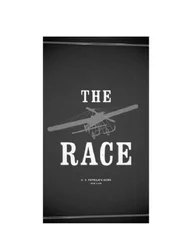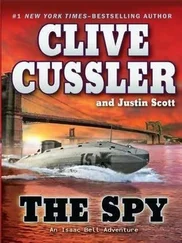The man smiled knowingly. “Among other things. My interests are . . . eclectic, I suppose you could say.”
“Interesting that our paths would cross here,” Sam said, studying the man’s face.
“Truth is stranger than fiction, I believe. This morning, while I was researching the Ottoman rule of Bulgaria, I came across the name Arnost Deniv-a Metropolitan from the fifteenth century.”
Remi replied, “But the librarian said there was no-”
“She said they had no record of a Metropolitan by that name dying during that period. The book in which I found him hasn’t been digitized yet. You see, when the Ottoman Empire-which was devoutly Muslim-conquered Bulgaria, thousands of clergy were killed. Often, those who survived were demoted or exiled, or both. This was the case with Arnost Deniv. He was quite influential, and this worried the Ottomans.”
“In 1422, after returning from missionary work in the East, he ascended to the level of Metropolitan, but four years later he was demoted and exiled. Under pain of death, he was ordered by the Ottomans to restrict his ministrations to the village in which he died two years later.”
“And let me guess,” Sam said. “The Ottomans did their best to destroy much of the EOC’s history during that period.”
“Correct,” the man said. “As far as many of the history texts of that time are concerned, Arnost Deniv was never more than a lowly priest in a tiny hamlet.”
“Then you can tell us where he’s buried?” asked Remi.
“Not only can I tell you that but I can show you where all his worldly possessions are on public display.”
SOFIA, BULGARIA
Their benefactor’s instructions were simple: drive ten miles north to the town of Kutina, in the foothills of the Stara Planina Mountains. Find the Kutina Cultural History Museum, and ask to see the Deniv exhibit.
They pulled into Kutina shortly after one in the afternoon and stopped at a cafe for lunch. Using cobbled-together phrases, Sam and Remi were able to get directions to the museum.
“By the way,” Sam said as he opened the Fiat’s driver’s door, “did you get that man’s name? For the life of me, I can’t remember.”
With her own door half open, Remi paused. Her brows furrowed. “That’s funny . . . neither can I. Something that began with a C , I think.”
Sam nodded. “Yes, but was that his first name or his last name? Or both?”
Having seen more than their fair share of Eastern Orthodox churches, Sam and Remi were relieved to find the museum was located in an old butter yellow farmhouse overlooking the Iskar River. On either side of the structure was lush green horse pasture.
They parked in the museum’s gravel turnaround, got out, and climbed the porch steps. In the front door’s mullioned window was a universal “Be Back At” clock sign but in Cyrillic. The hands were pointed at two-thirty.
“Twenty minutes,” Sam said.
They sat down on the porch swing and rocked back and forth, chatting and killing time. A light rain began to fall, pattering on the roof above.
Remi asked, “Why don’t we have one of these? It’s relaxing.”
“We do,” Sam replied. “I bought it for you for Arbor Day four years ago.” Sam liked to surprise his wife with gifts on obscure holidays. “I haven’t had the time to put it together yet. I’ll move it to the top of my to do list.”
Remi hugged his arm. “Oh, that’s right. Arbor Day? Are you sure it wasn’t Groundhog Day?”
“No, we were in Ankara on Groundhog Day.”
“Are you sure? I could have sworn Ankara was in March . . .”
At 2:28 an old green Bulgaralpine coasted into the turnaround and pulled to a stop on the lawn. A lanky woman in granny glasses and a beret climbed out, saw them on the porch, and waved. “Sdrawei!” she called.
“Sdrawei!” Sam and Remi replied in unison. “Hi, there!” and “Do you speak English?” were two phrases they tried to commit to memory whenever they visited a new country.
Sam now used the second phrase as the woman started up the porch steps. She replied, “Yes, I speak English. My sister, she lives in America-Dearborn, Michigan, America. She teaches me over the Internets. I am Sovka.”
Sam and Remi introduced themselves.
Sovka asked, “You have come to see the museums?”
“Yes,” said Remi.
“Good, then. Follow in, please.” Sovka unlocked the front door and stepped inside. Sam and Remi followed. The interior smelled of old wood and cabbage, and the walls were painted in a similar tone as the exterior: faded butter yellow. After hanging up her coat in the foyer closet, the woman led them into a small office in the converted front room.
“What brings you to this museums?” the woman asked.
Sam and Remi had discussed their approach on the way to Kutina and had decided on directness. “We’re interested in Father Arnost Deniv. Someone at the Bulgarian National Library in Sofia suggested you might have some artifacts related to him.”
Sovka’s eyes widened. “The Methodius? They know about our museums at the Methodius? In Sofia?”
Remi nodded. “Indeed they do.”
“Oh, I will be putting this into our soon news flyer paper. What a proud moment for us. To answer question: no, you are mistaken. We do not have some of Father Deniv’s personal matters. We have all of his personal matters here. May I ask, why are you interested with him?” Sam and Remi explained their book project, and Sovka nodded solemnly. “A dark time for the Church. Good that you are writing about it. Come.”
They followed Sovka out of the office, down the hall, then up a set of switchback steps to the second floor. Here the walls had been torn down, turning what looked like a thousand square feet of bedrooms into an open space. Sovka led them to the southeast corner of the house, where a cluster of glass display cases and hanging tapestries had been arranged to form an alcove. Ceiling pot lights shone down on the cases.
Remi saw it first, followed a moment later by Sam. “Do you see-”
“I do,” he replied.
Sovka asked over his shoulder, “Pardons me?”
“Nothing,” Remi replied.
Even from ten feet away, the curved edge of gold seemed to leap out at them from the case near the wall. Hearts pounding, Sam and Remi stepped into the alcove. There, on the top shelf, resting on a folded jet-black cassock trimmed in burnt orange, was the Theurang disk.
Sovka spread her arms with a flourish and said, “Welcome to the Deniv Collections. Everything in his possessions at the time of death is here.”
Sam and Remi tore their eyes from the disk and looked around. In all, there were perhaps twenty items, most of it clothing, grooming tools, writing instruments, and a few scraps of correspondence mounted in shadow boxes.
“What’s this item here?” Remi said as casually as possible.
Sovka looked at the Theurang disk. “We are not to be certain. We believe it is a keepsake of sorts, perhaps from within his missionary quest in savage lands.”
“It’s fascinating,” Sam said, leaning closer. “We’ll just have a look around, if you don’t mind.”
“Of course. I am over here, if help is needed.”
Sovka wandered off but never strayed out of eyesight.
“This complicates matters,” Remi whispered to Sam.
Relieving Besim Mala of his Theurang disk had been an easy decision. Here, however, Arnost Deniv’s disk was a part of recognized history. Breaking into the museum after hours would be easy enough, they knew, but neither Sam nor Remi felt good about that option.
“Let’s confer with our experts,” Remi suggested.
They told Sovka they would be back shortly, then stepped out onto the porch. They dialed Selma, asked her to conference in Jack Karna, then waited through two minutes of squelches and clicks as she made the appropriate connections. Once Karna was on the line, Sam explained their situation.
Читать дальше
